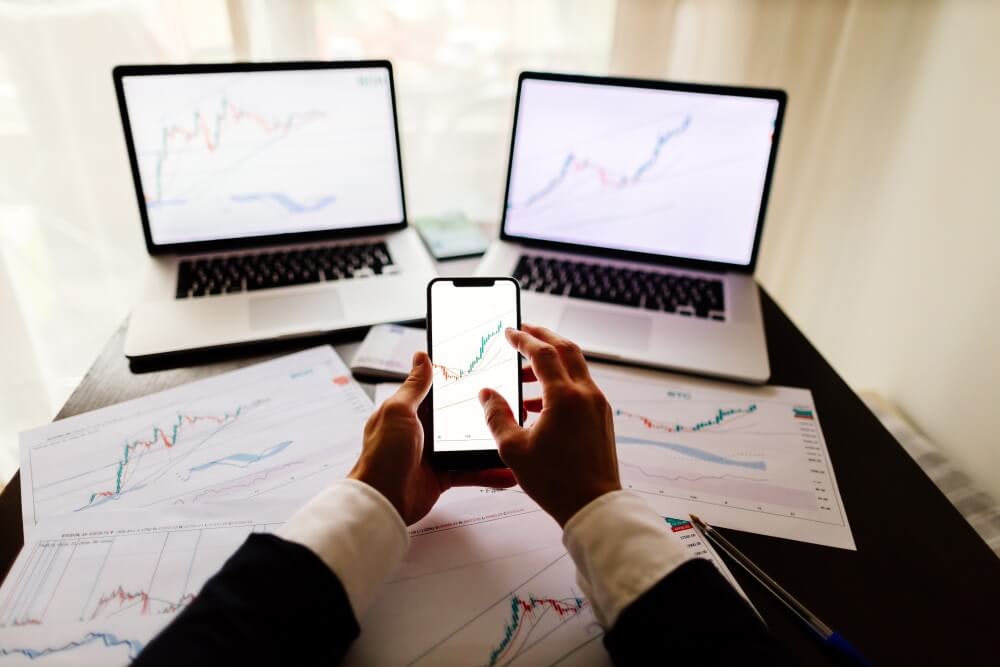Nick Goold
Traders cannot control the direction of the market. Some traders hope the market will move the way they need it to, treating it all as a matter of luck. However, in reality, the market moves independently of individual intentions.
Some traders also believe that professional and institutional traders move the market. However, this is also incorrect. Even the largest traders can only influence market prices momentarily. The volume of trading in the foreign exchange market is so large that no single trader can control the market.
To be successful in trading, you need to understand what you can control. Even if you follow your trading plan and trade within the rules, you can still incur losses in the short term, or you can just be lucky and make a profit.
First, the market can't be controlled by any one trader. Second, instead of just looking at the results of one trade, take a long-term view - one month, six months, a year, etc.

Focus on these factors that the trader can control:
● Time of day to trade
● When to close trades.
● Which markets to watch and trade
● When to close out the trade
● The overall risk of the trade
● Emotions about the outcome of the trade
● What you learn from the trade
● Pre-trade planning
Traders cannot control the market itself, but they can control their trades and how they approach the market. The market moves independently and without any consideration of the trader's circumstances. Protect your assets from unexpected market movements by controlling your trading.

Traders have four main tasks:
● Managing risk
● Creating a trading plan
● Practising trades
● Reflecting on the trades made
● How to control your trading and risk
What factors that traders can control
Time of day to trade
When you first look at a price chart, you may be tempted to take a position quickly and so you make an impulsive entry. However, before entering a new position, carefully analyse the market and think carefully about your trading strategy.
It may seem to take a long time and be tedious, but if you carefully plan your trades, you will not be distracted by short-term price movements. Controlling the time of day when you trade will prevent impulsive entries and avoid large losses.
When to close a position
When you have a position, the profit and loss will fluctuate as you watch the screen. There's nothing you can do about that. But you can control when to 'close' the position. If you feel that the market has changed or your entry basis was incorrect, you should close the trade immediately and analyze the market again.
Also, if you have unrealized losses or gains when an important economic indicator is about to be released, it's probably advisable to close the position early. That will help prevent any large loss because of an unpredictable and sudden change in price.
The overall risk of the trade
Risk control is one of the most important factors a trader can control: Know in advance how much risk you are willing to take on a single trade and how much risk you can accept to the total value of your account.
Traders with good risk control can avoid over-positioning and are much less likely to suffer losses so large, they can't continue trading.
Emotions about the outcome of a trade
While you may feel excited and happy after a winning trade, you will probably feel depressed after a losing trade. However, don't get overly upset after a losing trade - the outcome of each trade is not as important as managing your risk and following your trade plan. Even professional traders do not win 100% of the time.
No matter how good your trading strategy is, there will be times when it will be a losing trade. But you need to carry on trading within the rules, as long as your trading strategy can still be effective.
What do you learn from a trade?
Losing trades are the best textbook for finding ways to improve your trading process.
On the other hand, getting excited by gains can lead to overconfidence and reduce your ability to follow a trading strategy, which can eventually lead to big losses. In trading, keep a cool head about the outcome and focus on the process rather than the result. That will lead to long-term profits.
Changing from one trading strategy to the next because of the outcome of each trade is not good practice and will not help you achieve consistent results. Persevere with a single trading strategy for a reasonable time to test it thoroughly.
Trading plan
Trading according to a trading plan is one of the main things a trader can control. If you are new to trading, you may need more confidence in your trading plan. Nevertheless, if you continue to follow your trading plan, you will find areas for improvement and build a trading plan that works best for you.
Different traders approach the markets in different ways. So, it's best to develop an individual trading plan that suits your lifestyle and personality. All traders have different strengths and weaknesses. To improve your mental training, build a trading plan with a high win rate that does not make trading overly stressful.

